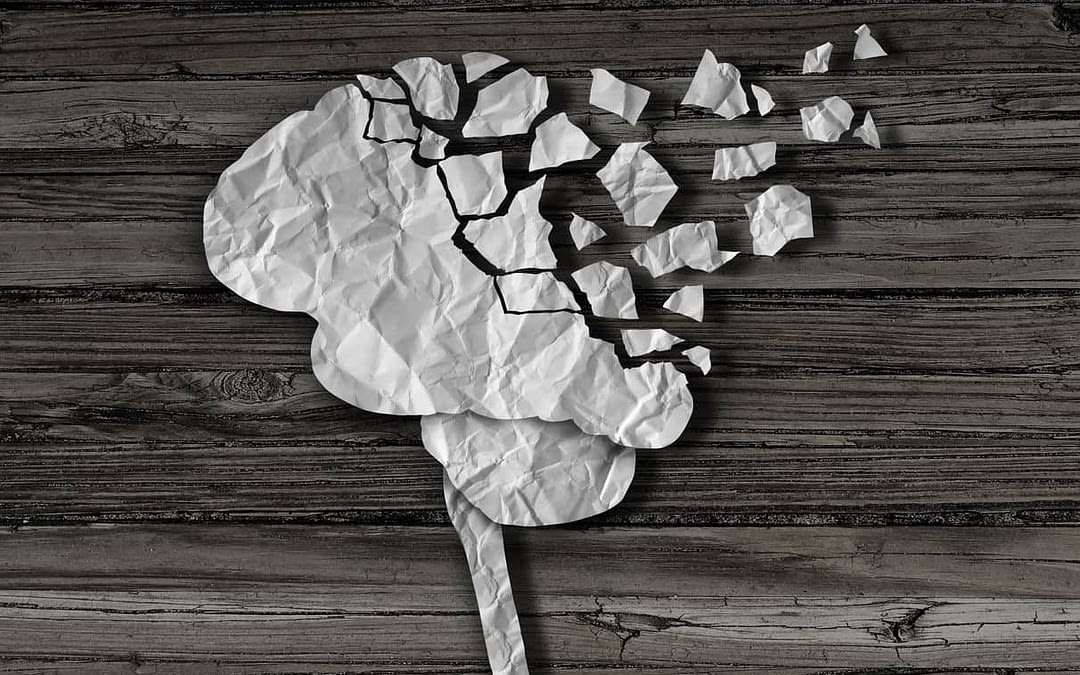Concussion and other forms of traumatic brain injury (TBI) have become well known triggers for later life neurological complications such as early onset dementia and personality changes, but what is less known, is that hormonal imbalance can occur in up to 40% of patients with a history of TBI or concussion, which can cause full-body symptoms and changes leading to reduced overall health and quality of life.
The term “not well since” in medicine captures a particular point in time that a patient can identify experiencing a change to their health. For patients with a history of concussion or TBI, we need to consider the impact of their injury on their current symptoms and future health risks.
The hormone regulating regions of the brain (hypothalamus and anterior pituitary) are innervated by very small, very fragile arteries and veins, that are highly susceptible to damage during trauma to the head. Research has followed patients with a history of TBI to discover that many of them have deficiencies in sex hormones (estrogen, progesterone, testosterone), or changes to their stress hormones (cortisol) as a result of their brain injury, and should be supported with hormonal therapies to address weight gain, urinary frequency, headaches, PMS or low testosterone to get to the root of their long-standing symptoms.
Our approach with TBI is to fully assess patients for pituitary hormone deficiency by looking at thyroid function, sex hormones, cortisol and adrenal reserve. Imbalances in these hormones can cause many symptoms that will continue to persist after the injury unless properly evaluated and treated.
Immediate support for TBI is preferred of course, with emerging support for the use of melatonin, creatine and specialized diets to support brain healing and recovery. Often by the time we see patients with a history of TBI they have struggled for years with their symptoms, without ever having their hormones assessed.
References:
1. Mesquita J, Varela A, Medina JL. Trauma and the endocrine system. Endocrinol Nutr. 2010 Dec. 57(10):492-9.
2. Kaulfers AM, Backeljauw PF, Reifschneider K, Blum S, Michaud L, Weiss M, et al. Endocrine dysfunction following traumatic brain injury in children. J Pediatr. 2010 Dec. 157(6):894-9.
3. Acerini CL, Tasker RC. Neuroendocrine consequences of traumatic brain injury. J Pediatr Endocrinol Metab. 2008 Jul. 21(7):611-9.
4. Klingbeil GE, Cline P. Anterior hypopituitarism: a consequence of head injury. Arch Phys Med Rehabil. 1985 Jan. 66(1):44-6.
5. Powner DJ, Boccalandro C. Adrenal insufficiency following traumatic brain injury in adults. Curr Opin Crit Care. 2008 Apr. 14(2):163-6.
6. Thurman DJ, Alverson C, Dunn KA, et al. Traumatic brain injury in the United States: a public health perspective. J Head Trauma Rehabil. 1999 Dec. 14(6):602-15.
7. Behan LA, Phillips J, Thompson CJ, et al. Neuroendocrine disorders after traumatic brain injury. J Neurol Neurosurg Psychiatry. 2008 Jul. 79(7):753-9.
8. De Sanctis V, Sprocati M, Govoni M R, et al. Assessment of traumatic brain injury and anterior pituitary dysfunction in adolescents. Georgian Med News. 2008 Mar. 18-23.
9. Tritos NA, Yuen KC, Kelly DF, AACE Neuroendocrine and Pituitary Scientific Committee. AMERICAN ASSOCIATION OF CLINICAL ENDOCRINOLOGISTS AND AMERICAN COLLEGE OF ENDOCRINOLOGY DISEASE STATE CLINICAL REVIEW: A NEUROENDOCRINE APPROACH TO PATIENTS WITH TRAUMATIC BRAIN INJURY. Endocr Pract. 2015 Jul. 21 (7):823-31.
10. Silva PP, Bhatnagar S, Herman SD, et al. Predictors of Hypopituitarism in Patients with Traumatic Brain Injury. J Neurotrauma. 2015 Nov 15. 32 (22):1789-95
11. Estes SM, Urban RJ. Hormonal replacement in patients with brain injury-induced hypopituitarism: who, when and how to treat? Pituitary. 2005;8:267-270.
12. Leal-Cerro A, Flores JM, Rincon M, Murillo F, Pujol M, Garcia-Pesquera F, Dieguez C, Casanueva FF. Prevalence of hypopituitarism and growth hormone deficiency in adults long-term after severe traumatic brain injury. Clin Endocrinol (Oxf). 2005;62:525-532.
13. Powner DJ, Boccalandro C, Alp MS, Vollmer DG. Endocrine failure after traumatic brain injury in adults. Neurocrit Care. 2006;5:61-70.
14. Schneider HJ, Schneider M, Saller B, Petersenn S, Uhr M, Husemann B, von Rosen F, Stalla GK. Prevalence of anterior pituitary insufficiency 3 and 12 months after traumatic brain injury. Eur J Endocrinol. 2006;154:259-265.


Recent Comments